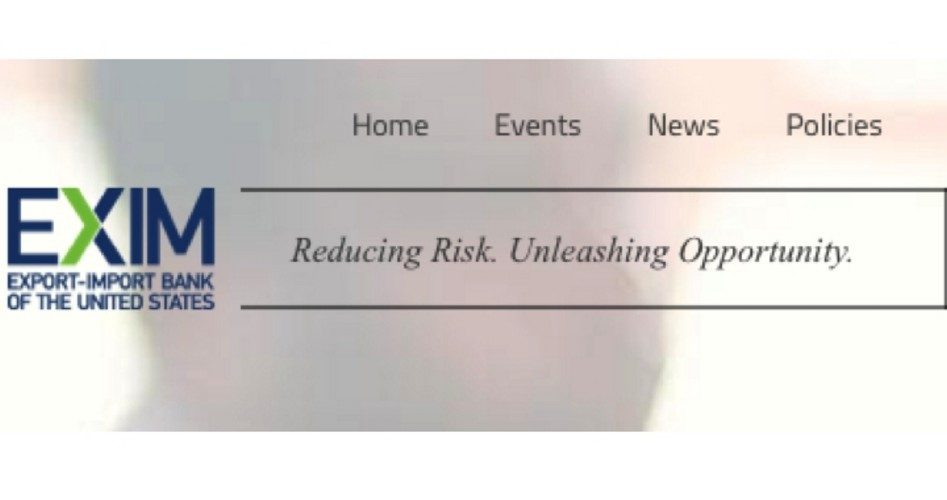
With the passage of a transportation bill by the House of Representatives Thursday, Congress is well on its way to reviving the Export-Import (Ex-Im) Bank, a symbol of corporate welfare that same body was thought to have eliminated earlier this year.
Although the primary purpose of the bill, which passed 363-64, was to fund highway construction, it included provisions reauthorizing the Ex-Im Bank, which finances and insures risky foreign purchases of goods produced by American companies. Congress, bowing to pressure from conservatives, had allowed the bank’s charter to expire in June, marking a rare instance in which a federal program was put out to pasture.
Nevertheless, the bank remained open, continuing to manage its existing portfolio, and its beneficiaries — primarily, politically connected corporations and labor unions — immediately mounted a campaign to get its charter restored. They claimed the bank’s inability to make new loans was costing companies sales, which could lead to lost jobs in the United States. General Electric even announced it was going to move 500 jobs overseas to take advantage of foreign countries’ willingness to play fast and loose with their own taxpayers’ money to finance exports.
Still, they had something of an uphill battle to fight on Capitol Hill, where conservatives rightly decried the Ex-Im Bank as “crony capitalism” and Senate Majority Leader Mitch McConnell (R-Ky.) refused to bring a standalone Ex-Im reauthorization bill up for a vote. Newly elected House Speaker Paul Ryan (R-Wis.) also spoke out against Ex-Im, declaring, “I think there are plenty of other ways to expand opportunity in this country, and corporate welfare is not one of them.”
The transportation bill, the first measure to come to a vote under Ryan’s speakership, provided Ex-Im proponents with the opportunity to revive the bank. Provisions to reauthorize the Ex-Im Bank were included in both the Senate and House versions of the bill, both of which passed their respective chambers and now await reconciliation.
Getting the initial reauthorization bill passed in the House, though, was far from easy. After months of effort from bank supporters, the bill remained stalled in the House Financial Services Committee, whose chairman, Representative Jeb Hensarling (R-Texas), had prevented it from coming to a vote. On October 27, the House, by a vote of 275-154, approved a discharge petition — the first successful one in 13 years, according to The Hill — that forced the bill out of committee and onto the floor for a vote. Though all but two of the opposing votes on the discharge petition were cast by Republicans, the House went on to pass the Ex-Im reauthorization bill 313-118, with Republicans about evenly divided and Democrats, with the exception of Representative Alan Grayson (D-Fla.), fully in favor.
With McConnell still denying a standalone Ex-Im reauthorization bill a vote in the Senate, the House incorporated its reauthorization into the highway bill. Even then, Ex-Im proponents had to “beat back a series of amendments that would have crimped the bank’s ability to offer export-credit support and complicated its chances for renewal,” the Wall Street Journal reported.
Ex-Im supporters seem to have bought the lobbyists’ assertions that the unconstitutional bank — which, as Representative Mick Mulvaney (R-S.C.) pointed out, is “not a bank” but “a government program” — is key to a thriving export industry. According to the New York Times, “The Democrats’ leader, Representative Nancy Pelosi of California, cited estimates that the bank had helped create 1.5 million jobs since 2007 in export industries and had earned $7 billion over two decades for the Treasury through proceeds from loan repayments.”
“This is about us being competitive all around the world and making sure that we keep American jobs here at home,” Representative Stephen Fincher (R-Tenn.) said during the October debate over the bill. After the transportation bill amendments were defeated, he said, “This is a Republican reform bill, we should be happy when Democrats want to cross the aisle to support Republican ideas.”
Frequently, however, bipartisanship is the way to bigger government, and this was no exception. As The New American’s Bob Adelmann reported when the Ex-Im Bank’s charter expired, the bank has always been in the business of making risky loans to favored borrowers, putting taxpayers in jeopardy:
The bank, created by executive order by then-president Franklin Roosevelt in 1934, was initially enabled to loan money to the Soviet Union, whose own credit rating precluded it from borrowing in the international markets. With this lifeline, the Soviet Union gained respectability and credibility, and international lines of credit opened to the communist country.
In 1945, Congress made the bank an independent agency of the executive branch, and it has been making loans to dead-beat and lower quality credit risks ever since, totaling some $500 billion over that period.
Like flies to honey, crony capitalists seeking to maximize their market share versus their competitors, saw their opportunity to use the bank and its taxpayer guarantees to their advantage. By using those guarantees to help finance the purchase of their products by companies in countries around the globe, it offloaded the risk of default onto those taxpayers while keeping their own balance sheets clean and tidy and available for other more trustworthy customers.
Today the vast majority of Ex-Im loans fund exports by behemoth corporations such as G.E. and Boeing, which can surely afford to pay for their own operations. And any jobs the bank supposedly creates are merely transferred from firms lacking Ex-Im backing to those receiving its largess.
Ex-Im proponents argue that the bank is not a danger to taxpayers because its operating budget comes entirely from the fees its loans generate. But as Adelmann observed, this claim has “been proven false. Economists Jason Delisle and Christopher Papagianis called the Bank’s so-called profits ‘almost surely an illusion’ because the ‘government’s official accounting rules effectively force budget analysts to understate the [real] cost of loan programs,’ especially by not accounting for market or default risk.”
Another danger from Ex-Im: It may well be used to push the anti-“climate change” agenda. According to the Washington Examiner, a recent report from consulting firm Climate Advisers suggests that President Barack Obama and future presidents use the Ex-Im Bank to “help large emitters in the developing world such as India to build more solar and wind energy to reduce their electricity systems’ reliance on fossil fuels.” Since Ex-Im is supposedly self-funded, it “can theoretically be ramped up significantly without new funding from Congress,” the report said, giving the president a free hand to use the bank to fight the alleged threat of global warming.
“If we are ever, ever to deal with the threat of a social welfare state,” Hensarling said in October, “we must first take care of the corporate welfare state. And the face of the corporate welfare state is the Export-Import Bank.”
Barring an extraordinary uprising against the transportation bill, that “face” is going to be wearing a big grin in the very near future.



